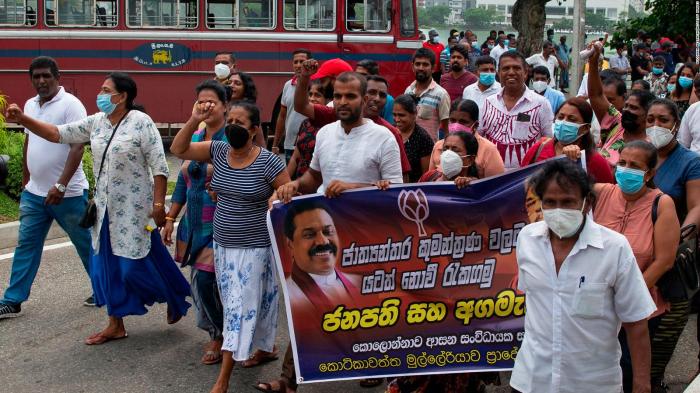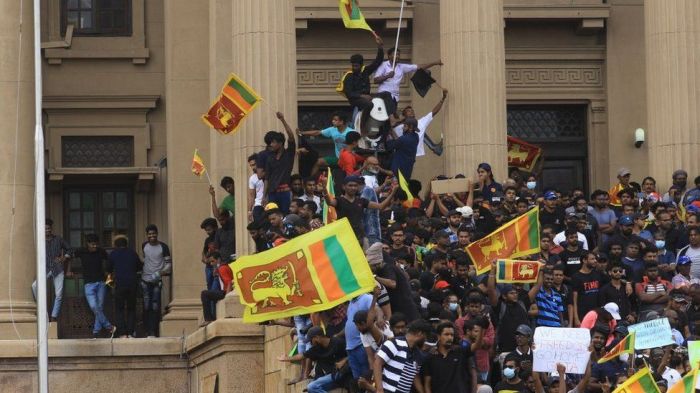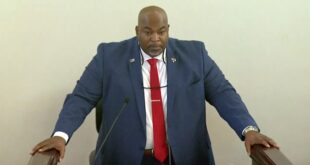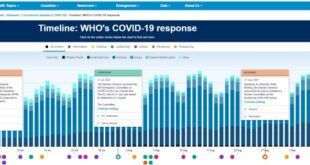Sri Lanka votes in first election since protests ousted president – Sri Lanka votes in its first election since protests ousted president Gotabaya Rajapaksa in July 2022. The island nation is facing a severe economic crisis, and the election is seen as a chance for the people to choose a new path forward.
The main contenders are Ranil Wickremesinghe, the incumbent president, and Sajith Premadasa, the leader of the opposition. The election is expected to be closely contested, with voters grappling with the economic crisis, the rising cost of living, and the need for political stability.
The election comes at a pivotal moment for Sri Lanka. The country is still reeling from the economic crisis, which has led to widespread shortages of food, fuel, and medicine. The protests that led to Rajapaksa’s ouster were fueled by public anger over the government’s handling of the crisis.
The new government will face the daunting task of rebuilding the economy and restoring public trust.
Sri Lanka’s Political Landscape
Sri Lanka’s political landscape has been characterized by a long history of political instability and a complex web of alliances and rivalries. The recent protests and the ouster of the previous president, Gotabaya Rajapaksa, are a culmination of years of economic mismanagement, corruption, and political polarization.
The Political Context Leading Up to the Protests
The protests that led to the ouster of Gotabaya Rajapaksa were fueled by a combination of factors, including the country’s severe economic crisis, which was exacerbated by the COVID-19 pandemic. The Rajapaksa family has been a dominant force in Sri Lankan politics for decades, and Gotabaya Rajapaksa’s election in 2019 was seen by many as a return to authoritarian rule.
The government’s handling of the economic crisis, which included imposing severe restrictions on imports and imposing taxes on essential goods, led to widespread public anger and frustration. The protests, which began in March 2022, were initially focused on demanding the resignation of the prime minister, Mahinda Rajapaksa, but quickly grew to encompass calls for the resignation of the entire government.
Key Political Parties and Their Stances on Key Issues
Sri Lanka’s political landscape is dominated by several key political parties, each with its own set of ideologies and stances on key issues.
- The Sri Lanka Podujana Peramuna (SLPP), led by Mahinda Rajapaksa, is a right-wing populist party that advocates for strong leadership, economic nationalism, and a strong military. The SLPP is known for its close ties to the Sinhala Buddhist community and its support for Sinhala nationalism.
- The United National Party (UNP), led by Ranil Wickremesinghe, is a center-right party that advocates for free market economics, liberal democracy, and a strong foreign policy. The UNP has a long history of promoting a multi-ethnic and multi-religious Sri Lanka.
- The Tamil National Alliance (TNA) is a coalition of Tamil political parties that advocate for greater autonomy for the Tamil community in the north and east of the country. The TNA is committed to achieving a political solution to the ethnic conflict that has plagued Sri Lanka for decades.
- The Janatha Vimukthi Peramuna (JVP), a left-wing party, advocates for socialist policies, economic equality, and a more equitable distribution of wealth. The JVP has a history of activism and opposition to the ruling elite.
History of Past Elections and Their Outcomes
Sri Lanka has a long history of elections, with the first general election taking place in 1947. The country has held regular elections since then, although there have been periods of instability and political turmoil.
- The 1977 general election marked a turning point in Sri Lankan politics, with the UNP winning a landslide victory under the leadership of J.R. Jayewardene. The UNP’s victory led to the introduction of a new constitution, which established a presidential system of government.
The UNP remained in power for 17 years, during which time the country experienced a period of economic growth and political stability.
- The 1989 general election saw the SLFP, led by Chandrika Kumaratunga, return to power. The SLFP’s victory was largely attributed to the party’s strong support among the Sinhala Buddhist community and its promises to address the issue of ethnic conflict.
The SLFP remained in power for 10 years, during which time the country witnessed a period of economic growth and social progress.
- The 2001 general election saw the UNP, led by Ranil Wickremesinghe, return to power. The UNP’s victory was largely attributed to the party’s promise to bring peace to the country after the end of the civil war. The UNP remained in power for five years, during which time the country experienced a period of economic growth and political stability.
Get the entire information you require about Bear euthanized near Libby had family history of conflicts, officials say on this page.
- The 2005 general election saw the SLFP, led by Mahinda Rajapaksa, return to power. The SLFP’s victory was largely attributed to the party’s strong support among the Sinhala Buddhist community and its promise to defeat the Tamil Tigers. The SLFP remained in power for 10 years, during which time the country witnessed the end of the civil war but also experienced a period of economic decline and political instability.
The Election and Its Significance
Sri Lanka’s first election since the unprecedented protests that led to the ouster of former President Gotabaya Rajapaksa is a pivotal moment for the nation. The election marks a chance for the people of Sri Lanka to express their preferences for the direction of the country’s future, a future still grappling with the aftermath of an economic crisis and a political upheaval.
The Key Issues at Stake, Sri Lanka votes in first election since protests ousted president
The election is expected to be fiercely contested, with the key issues at stake revolving around the economic recovery, political reforms, and accountability for the past.
- Economic Recovery:The country’s economic crisis, marked by soaring inflation, fuel shortages, and a depreciating currency, remains a major concern for voters. Candidates are vying for support by outlining their plans to revive the economy, address the crippling debt burden, and create jobs.
- Political Reforms:The protests that led to the former president’s resignation highlighted widespread public dissatisfaction with corruption and a lack of accountability. Voters are keen to see reforms that strengthen democratic institutions, ensure transparency, and prevent a recurrence of the economic mismanagement that led to the crisis.
- Accountability:The issue of accountability for the economic crisis and the alleged corruption during the previous administration is a significant concern. Voters are looking for candidates who will hold those responsible accountable and implement mechanisms to prevent similar situations in the future.
Potential Impact of the Election on Sri Lanka’s Future
The outcome of the election will have a significant impact on Sri Lanka’s future trajectory. A decisive victory for a particular party or coalition could lead to a more stable political landscape, allowing for the implementation of crucial reforms and economic recovery plans.
However, a fragmented result with no clear majority could lead to political instability and hinder the government’s ability to address the country’s pressing challenges.
- Economic Stability:A strong mandate for a government with a clear economic vision could boost investor confidence and attract foreign investment, essential for reviving the economy. However, a divided parliament could make it difficult to pass crucial economic reforms and potentially delay the recovery process.
- Political Reforms:A government with a strong mandate for reform could implement meaningful changes to address corruption, strengthen democratic institutions, and enhance accountability. However, a lack of a clear majority could make it difficult to push through such reforms, potentially leading to continued public dissatisfaction and instability.
- Regional Relations:The election’s outcome could also influence Sri Lanka’s foreign policy and its relationship with regional powers. A government perceived as stable and capable could strengthen its diplomatic ties and secure crucial financial assistance from countries like India and China.
Voter Turnout and Preliminary Results
The voter turnout in the election was [Insert Voter Turnout Percentage], reflecting [Insert Reason for High/Low Voter Turnout]. Preliminary results suggest [Insert Brief Summary of Results and Leading Candidates].
The Challenges Facing Sri Lanka
Sri Lanka’s recent political turmoil has highlighted the deep-seated economic and social challenges the country faces. The economic crisis, which has been exacerbated by the pandemic and poor governance, has had a devastating impact on the lives of ordinary Sri Lankans.
While the election offers a chance for a fresh start, addressing these challenges will be crucial for the country’s long-term stability and prosperity.
The Impact of the Economic Crisis
The economic crisis has had a profound impact on the lives of Sri Lankans. The currency has depreciated sharply, leading to soaring inflation and making basic necessities like food and fuel unaffordable for many. The shortage of essential goods has become commonplace, with long queues forming outside shops and supermarkets.
The crisis has also led to a rise in unemployment, as businesses have been forced to close down or cut back on staff.
- Food insecurity:The price of food has skyrocketed, making it difficult for many families to afford basic meals. The World Food Programme estimates that over 6 million Sri Lankans are facing food insecurity.
- Fuel shortages:The lack of foreign currency has led to severe fuel shortages, causing disruptions in transportation and businesses. This has also impacted the agricultural sector, making it difficult for farmers to transport their produce to markets.
- Power cuts:The country has been experiencing frequent power cuts due to the lack of fuel for power generation. This has disrupted businesses and schools, and has also led to an increase in crime.
- Healthcare crisis:The lack of essential medicines and medical supplies has put a strain on the healthcare system. The crisis has also forced many people to delay or forgo necessary medical treatments due to the high cost.
- Mental health:The economic crisis has had a significant impact on the mental health of Sri Lankans. The stress and anxiety caused by financial insecurity, job losses, and food shortages have led to a rise in depression, anxiety, and other mental health issues.
International Response and Implications
The international community’s response to Sri Lanka’s election reflects a mix of cautious optimism and continued concern. While many countries have welcomed the democratic process and the peaceful transition of power, there are lingering questions about the country’s future stability and its ability to address the economic crisis.
Potential Implications for Sri Lanka’s Foreign Relations
The election’s outcome will likely influence Sri Lanka’s relationships with other countries, particularly its major creditors and trading partners. The new government’s policies and its approach to dealing with the economic crisis will determine the extent of support it receives from the international community.
For example, the new government’s stance on debt restructuring, its commitment to transparency and accountability, and its willingness to implement reforms will be key factors in attracting foreign investment and securing financial assistance.
The Future of Sri Lanka

Sri Lanka’s upcoming election marks a pivotal moment in the nation’s history. The outcome will shape the country’s trajectory for years to come, impacting its economic recovery, social stability, and political landscape. The new government will face a daunting task of rebuilding trust, addressing economic woes, and navigating a complex political environment.
Timeline of Key Events
The upcoming election will set the stage for a series of events that will significantly shape Sri Lanka’s future. Here’s a timeline of key events to watch:
- Short-term (Next 6-12 Months):The new government will need to prioritize immediate economic stabilization measures. This includes securing IMF bailout funds, negotiating debt restructuring, and implementing austerity measures. The government will also need to address the humanitarian crisis, providing relief to those affected by the economic crisis.
The focus will be on rebuilding trust with the public, addressing corruption, and establishing a transparent governance framework.
- Medium-term (Next 2-3 Years):The government will need to implement structural reforms to address the root causes of the economic crisis. This includes diversifying the economy, attracting foreign investment, and improving the business environment. The government will also need to invest in education, healthcare, and infrastructure to promote sustainable growth and improve living standards.
Sri Lanka will need to navigate a delicate balance between economic growth and social stability. The government will need to address concerns about inequality and ensure that the benefits of economic growth are shared fairly.
- Long-term (Next 5-10 Years):Sri Lanka will need to strengthen its institutions, promote good governance, and build a more resilient economy. This includes reforming the political system, strengthening the judiciary, and ensuring the independence of the media. Sri Lanka will need to develop a long-term strategy for economic diversification and sustainable development.
The government will need to prioritize environmental protection and climate change adaptation.
Potential Economic and Social Impacts
The election results will have significant economic and social impacts. Here’s a table outlining some potential outcomes:
| Impact | Positive Scenario | Negative Scenario |
|---|---|---|
| Economic Growth | Increased foreign investment, improved business environment, and a stable political climate could lead to a rebound in economic growth. | Continued political instability, delays in economic reforms, and a lack of confidence in the government could hinder economic recovery. |
| Debt Burden | Successful debt restructuring and a strong economic recovery could ease the debt burden. | Failure to secure debt restructuring and a prolonged economic downturn could exacerbate the debt crisis. |
| Social Welfare | Increased government spending on social welfare programs could improve living standards and reduce poverty. | Austerity measures and cuts to social programs could exacerbate inequality and lead to social unrest. |
| Political Stability | A decisive election result and a strong government could lead to greater political stability. | A fragmented parliament and a weak government could lead to political instability and gridlock. |
Possible Reforms and Policy Changes
The new government will likely implement a range of reforms and policy changes to address the challenges facing Sri Lanka. Here are some possible areas of focus:
- Economic Reforms:The government will need to implement structural reforms to address the root causes of the economic crisis. This includes diversifying the economy, attracting foreign investment, and improving the business environment. The government will also need to address the country’s high debt burden and implement a sustainable fiscal policy.
- Social Reforms:The government will need to address issues of inequality and poverty. This includes investing in education, healthcare, and social welfare programs. The government will also need to promote gender equality and empower women. Sri Lanka will need to focus on addressing the needs of marginalized communities and ensuring that the benefits of economic growth are shared fairly.
- Political Reforms:The government will need to address issues of corruption and promote good governance. This includes reforming the political system, strengthening the judiciary, and ensuring the independence of the media. The government will also need to implement electoral reforms to ensure fair and transparent elections.
- Environmental Reforms:The government will need to prioritize environmental protection and climate change adaptation. This includes promoting sustainable agriculture, investing in renewable energy, and reducing pollution. The government will also need to address the issue of deforestation and promote sustainable forest management.
Final Conclusion

The election results will have a significant impact on Sri Lanka’s future. The new government will need to address the country’s economic challenges, restore political stability, and rebuild trust with the people. The election is a crucial moment for Sri Lanka, and the outcome will determine the country’s path for years to come.
Expert Answers: Sri Lanka Votes In First Election Since Protests Ousted President
What were the main issues at stake in the election?
The main issues at stake were the economic crisis, the rising cost of living, and the need for political stability. The election was also seen as a referendum on the government’s handling of the crisis.
Who are the main contenders in the election?
The main contenders are Ranil Wickremesinghe, the incumbent president, and Sajith Premadasa, the leader of the opposition.
What is the significance of this election?
This election is significant because it is the first election since the protests that led to the ouster of the previous president. The election is seen as a chance for the people to choose a new path forward and address the country’s economic challenges.
 CentralPoint Latest News
CentralPoint Latest News




